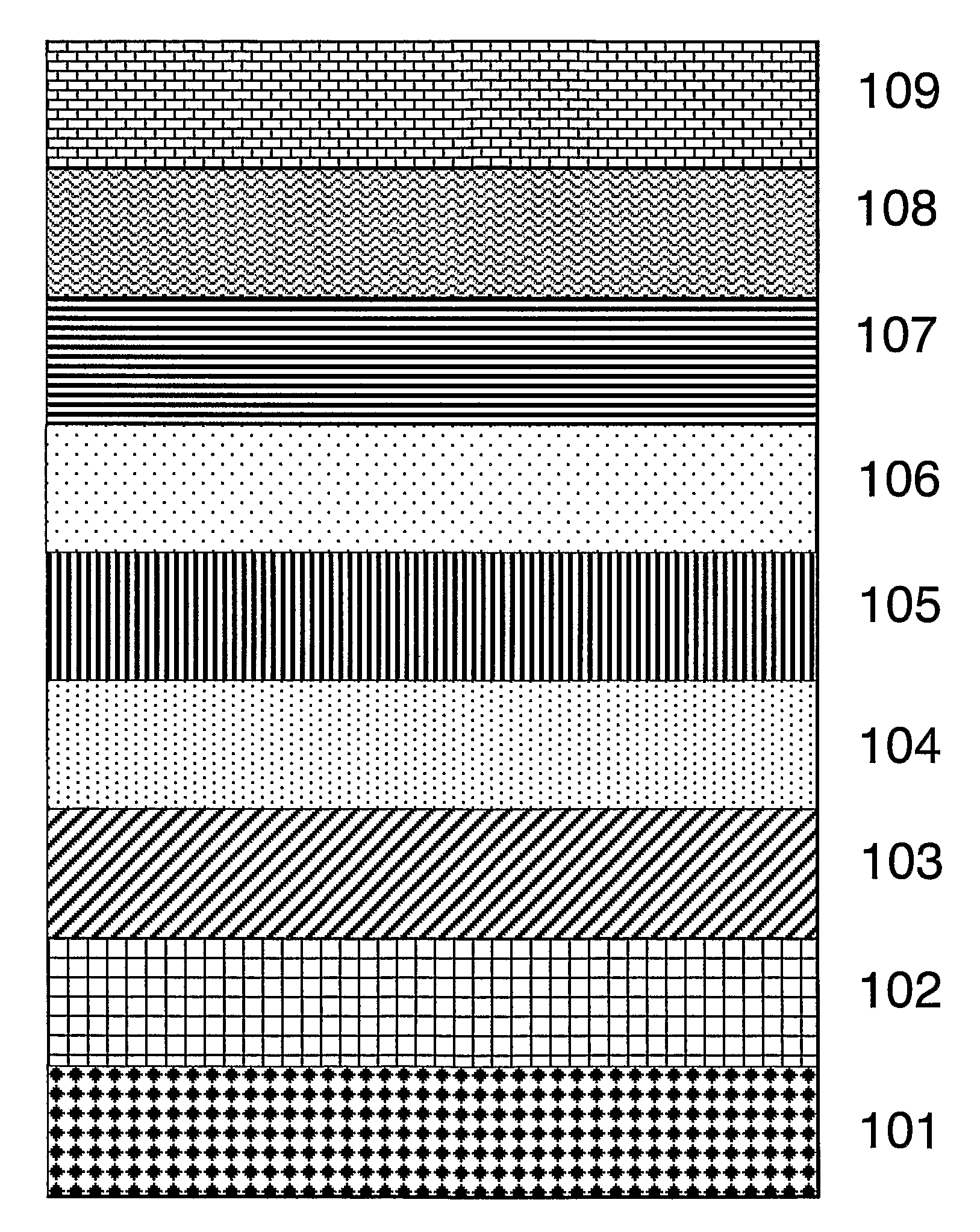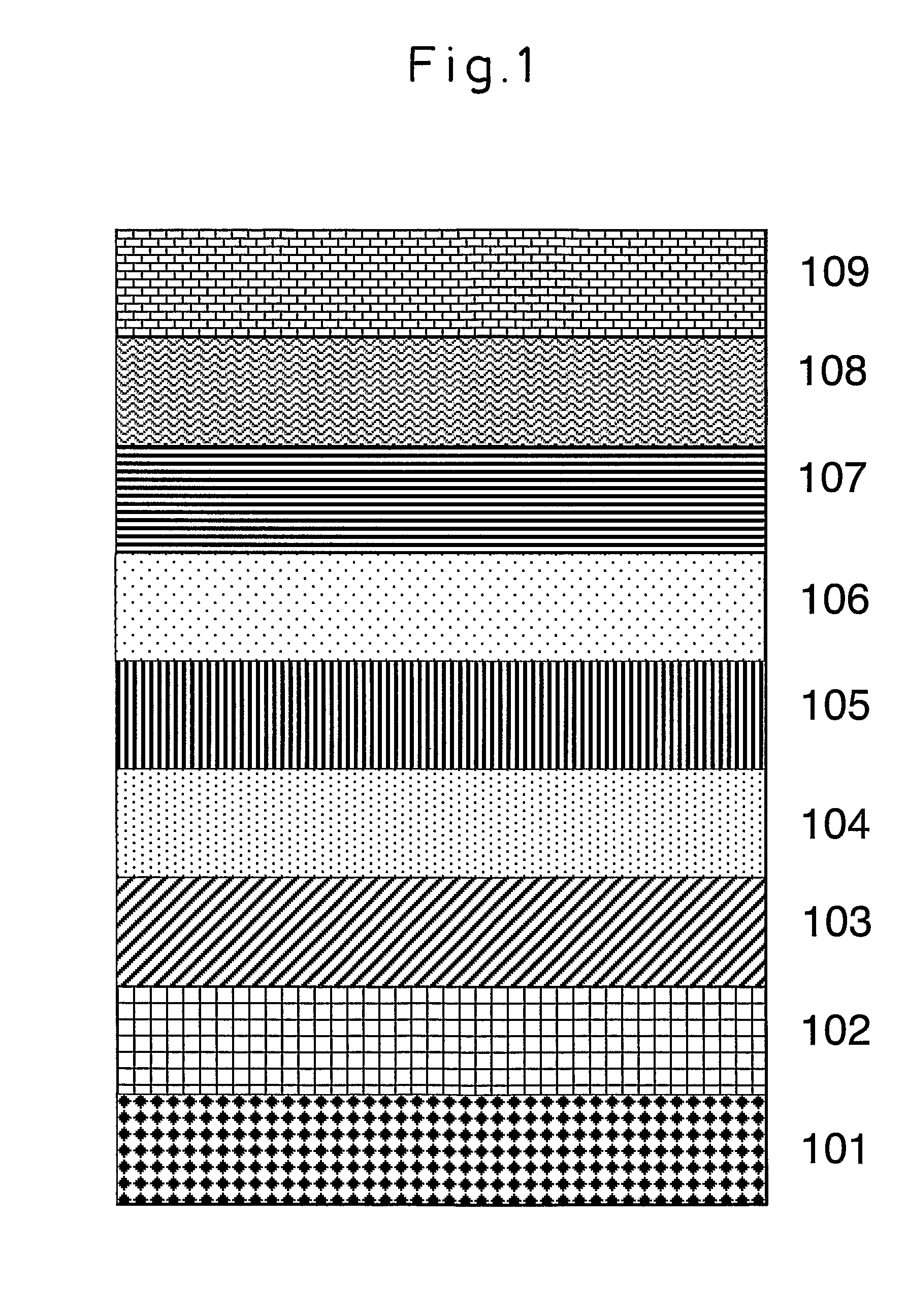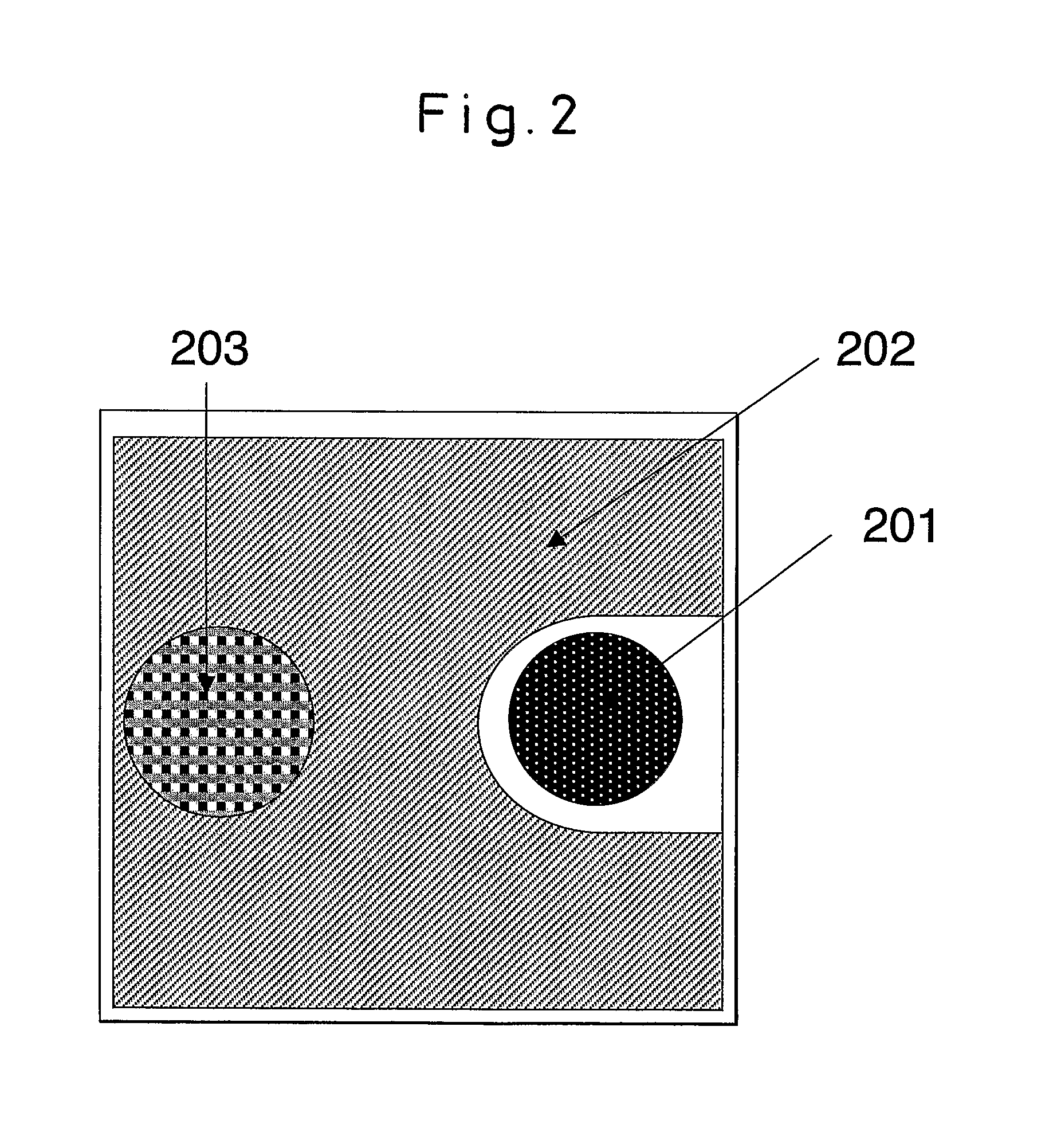N-type group III nitride semiconductor stacked layer structure
a technology of stacked layer structure and nitride, which is applied in the direction of semiconductor lasers, solid-state devices, semiconductor lasers, etc., can solve the problems of low doping efficiency, unfavorable, and impair the flatness, and achieve excellent flatness, low forward voltage, and low resistance
- Summary
- Abstract
- Description
- Claims
- Application Information
AI Technical Summary
Benefits of technology
Problems solved by technology
Method used
Image
Examples
example 1
[0086]A light-emitting device was fabricated by using the n-type Group III nitride semiconductor stacked layer structure of the present invention. FIG. 1 is a diagram schematically illustrating the semiconductor stacked structure of a light-emitting device fabricated in this Example. Reference numeral 101 denotes a substrate made of sapphire, 102 denotes a high temperature buffer layer of AlN, and 103 denotes an base layer of undoped GaN. Reference numeral 104 denotes a first n-type layer of Ge-doped GaN, which works as an n-contact layer in the light-emitting device. Reference numeral 105 denotes a second n-type layer of Ge-doped GaN, and 104 and 105 constitute the n-type Group III nitride semiconductor stacked layer structure of the present invention. Reference numeral 106 denotes an n-clad layer of Si-doped InGaN, 107 denotes a light-emitting layer of a multiple quantum well structure, 108 denotes a p-clad layer of Mg-doped AlGaN, and 109 denotes a p-contact layer of Mg-doped AlG...
example 2
[0108]In this Example, a Group III nitride semiconductor light-emitting device was fabricated in the same manner as in Example 1 with the exception of setting the concentrations of impurity atoms in the higher concentration layer and in the lower concentration layer in the second n-type layer 105 to be the same as the concentration of impurity atoms in the first n-type layer 104, decreasing the thickness of the higher concentration layer to be 3 nm, increasing the thickness of the lower concentration layer to be 30 nm, and setting the recurring periodic number of the higher concentration layers and of the lower concentration layers to be 5 times. Therefore, the first n-type layer 104 contained Ge atoms at an average concentration of 6.5×1018 cm−3 which was the same as that of Example 1, and the second n-type layer 105 contained Ge atoms at an average concentration of 2×1018 cm−3.
[0109]The obtained light-emitting device was evaluated in the same manner as in Example 1. The chip exhib...
example 3
[0112]In this Example, a Group III nitride semiconductor light-emitting device was fabricated in the same manner as in Example 1 with the exception of forming the second n-type layer 105 by using a layer homogeneously doped with Ge at a low concentration. In the second n-type layer 105, the amount of doping with Ge was set to be 1 / 25 that of the higher concentration layer in the first n-type layer 104 and the thickness was set to be 0.04 μm. That is, the second n-type layer 105 contained Ge atoms at a concentration of 4.8×1017 cm−3.
[0113]The obtained light-emitting device was evaluated in the same manner as in Example 1. The chip exhibited forward voltage of 3.2 V at a forward current of 20 mA. The emission center wavelength of the band of blue light emission at a forward current of 20 mA was found to be 465 nm. The emission intensity of the light emitted from the chip, as determined through a typical integrating sphere, was 5.2 mW. Thus, a Group III nitride semiconductor light-emit...
PUM
| Property | Measurement | Unit |
|---|---|---|
| thicknesses | aaaaa | aaaaa |
| thickness | aaaaa | aaaaa |
| thickness | aaaaa | aaaaa |
Abstract
Description
Claims
Application Information
 Login to View More
Login to View More - R&D
- Intellectual Property
- Life Sciences
- Materials
- Tech Scout
- Unparalleled Data Quality
- Higher Quality Content
- 60% Fewer Hallucinations
Browse by: Latest US Patents, China's latest patents, Technical Efficacy Thesaurus, Application Domain, Technology Topic, Popular Technical Reports.
© 2025 PatSnap. All rights reserved.Legal|Privacy policy|Modern Slavery Act Transparency Statement|Sitemap|About US| Contact US: help@patsnap.com



